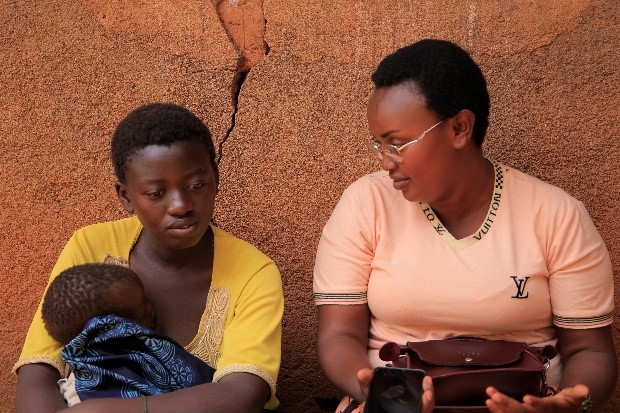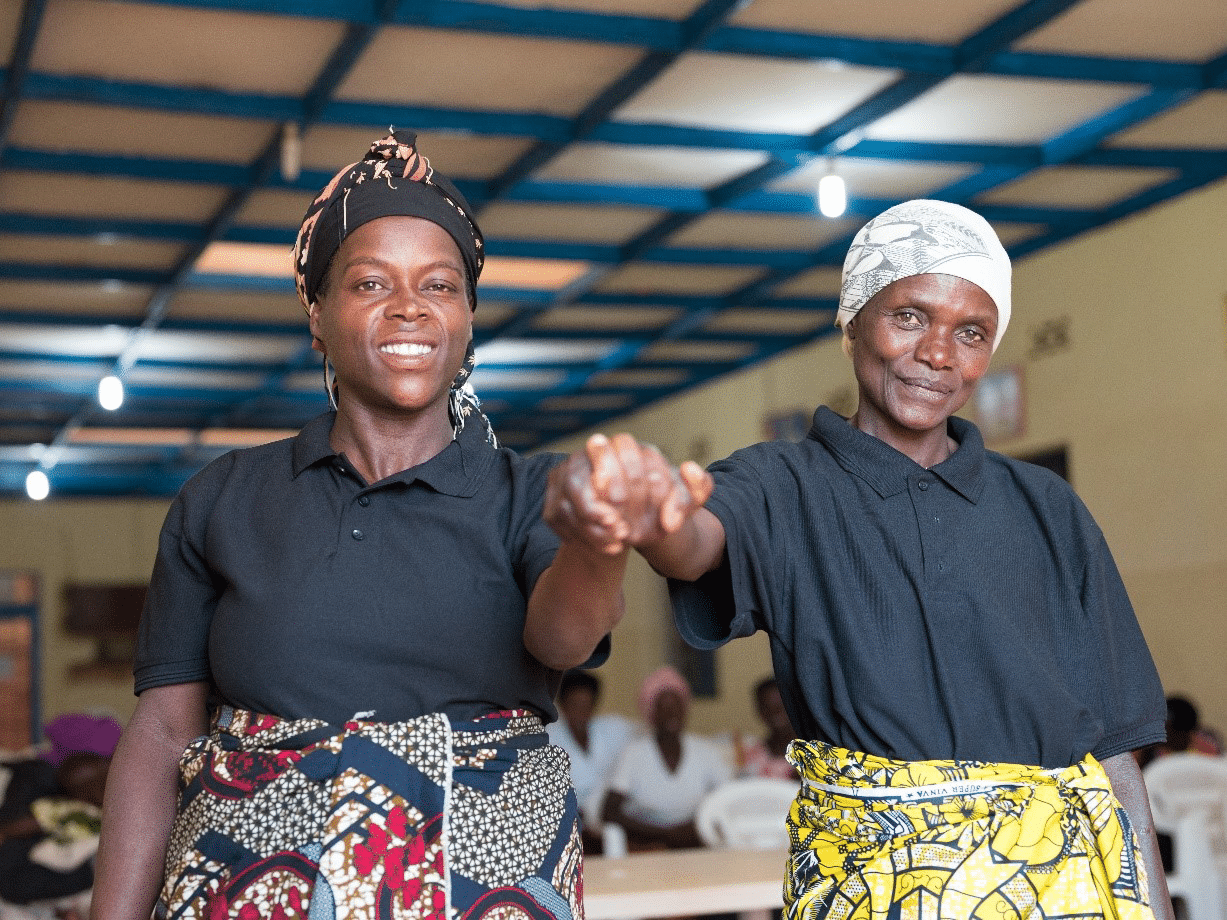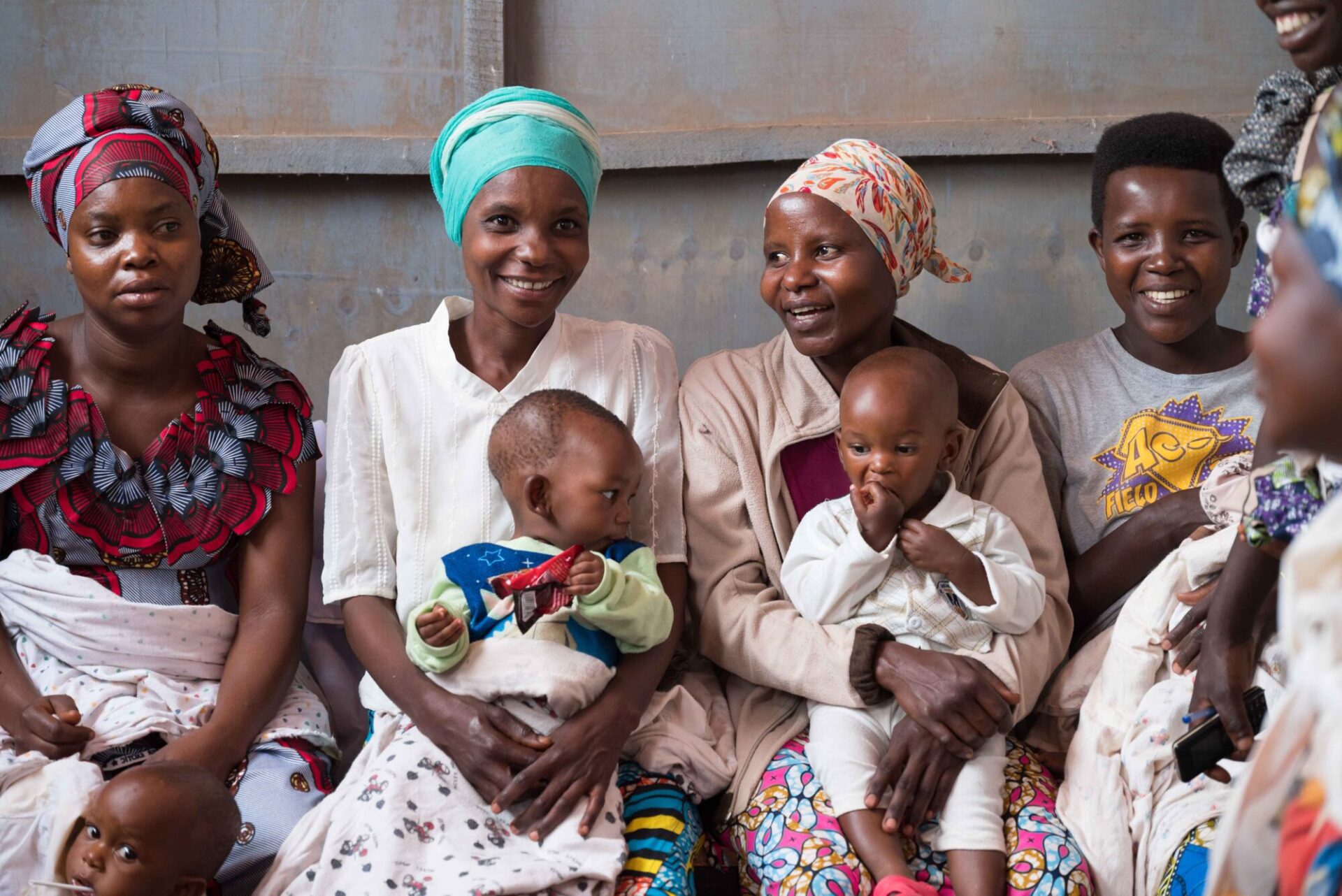Odette lives in the Gitega province of Burundi. A mother of two, she used to make a living by selling avocadoes. But after her husband abandoned the family, it became difficult to make ends meet. So, Odette turned to sex work. Shortly after doing so, she learned she was HIV-positive.
“Life became more and more difficult because I had nowhere to turn for help,” said Odette. “I thought my life was over. I didn’t know what to do.”
Odette sought care at the Association Nationale de soutien aux Séropositifs et malades du Sida – ANSS Santé PLUS HIV Clinic – where she initiated anti-retroviral treatment (ART). After she met her now husband and became pregnant with her third child, ANSS Santé PLUS linked Odette to a mentor mother who helped guide her through treatment adherence, continuity of treatment, and monitoring her viral load. Odette’s child was born HIV-negative.
ANSS Santé PLUS is one of 188 health facilities supported by the Reaching Impact, Saturation, and Epidemic Control (RISE) project, a Jhpiego-led consortium funded by the U.S. President’s Emergency Plan for AIDS Relief (PEPFAR) through the U.S. Agency for International Development (USAID). Through RISE, ICAP at Columbia University supports health facilities like ANSS Santé PLUS to provide recipients of care with such services as HIV testing, ART, adherence counselling and psychosocial support, prevention of vertical transmission services, and access to mentor mother groups, among others.
In 2023, the RISE-supported mentor mother program was established at 25 health facilities in Burundi, engaging 473 pregnant and breastfeeding women. The program pairs mentor mothers – mothers living with HIV who have received vertical transmission services – with pregnant or lactating women living with HIV. Mentor mothers are trained by nurses and midwives to provide peer support to pregnant and breastfeeding women living with HIV on the importance of adherence to ART, continuity of treatment, viral load monitoring, and early infant HIV diagnosis. They regularly visit the homes of pregnant women living with HIV – given that obstacles such as stigma often stand in the way of visiting a health facility in-person – to provide this support. In addition, they follow up with mothers who have interrupted ART, provide HIV testing for sexual contacts and biological children of mothers living with HIV, and follow up with HIV-infected infants for early initiation of ART.
“Person-centered care is essential to reaching HIV epidemic control in Burundi,” said Bonaparte Nijirazana, MD, MPH, country director of ICAP in Burundi. “It’s important that we implement programs that recognize the unique experiences of an individual so that health services are context-appropriate and will ultimately lead to improved long-term health outcomes. The mentor mother program is a perfect example of one of these successful programs – women living with HIV can feel safe and supported in accessing the care they need.”

Perpetue (left) meets with mentor mother Belyse (right) at SWAA Clinic.
Perpetue is another mother from Gitega province, who, similarly to Odette, faced a number of challenges that affected her ability to seek consistent health care. Leaving home at an early age, Perpetue became pregnant at 12 and faced violence perpetrated by her partner. A few months into her pregnancy, she began to feel ill. She visited a local health facility where she was diagnosed with HIV.
Perpetue sought treatment for HIV through the RISE-supported Society for Women and AIDS in Africa (SWAA) clinic in Gitega, which provides comprehensive HIV prevention, care, and treatment support for persons living with HIV. At the SWAA clinic, Perpetue worked with a mentor mother, Belyse, in an effort to prevent vertical transmission of HIV – but she gained much more. Perpetue trusted Belyse and confided in her that she did not feel safe at home.
“I left a letter for the mentor mother so they can help me,” Perpetue said. “And they did. I could never thank the mother mentor enough for watching over me and my children. They helped me a lot – followed me regularly, supported me, and never missed an appointment to take me to the hospital so that I can take my medication or to bring it to me at home.”
RISE works to help build the capacity of health care workers and community workers, like Belyse, on gender-based violence (GBV) and intimate-partner violence (IPV) identification, management, and reporting, specifically in conducting assessments and counselling of those who experience GBV or IPV.
In 2023, 416 individuals received post-GBV clinical care in six RISE-supported districts, including HIV testing, treatment for sexually transmitted infections, and provision of HIV post-exposure prophylaxis.
“Individuals who report a history of intimate-partner violence or gender-based violence are more likely than those who do not report such incidents to be at increased risk of acquiring HIV and facing difficulties in treatment adherence,” said Ruby Fayorsey, MD, MPH, deputy director of ICAP’s Clinical and Laboratory Unit and global technical director of RISE. “It’s important that our programs recognize this increased risk so that care can be tailored to the individual.”
RISE’s mentor mother program, endorsed by Burundi’s National HIV/AIDS Program (PNLS), is being scaled up across all 18 provinces in Burundi.
About ICAP
A major global health organization that has been improving public health in countries around the world for two decades, ICAP works to transform the health of populations through innovation, science, and global collaboration. Based at Columbia Mailman School of Public Health, ICAP has projects in more than 40 countries, working side-by-side with ministries of health and local governmental, non-governmental, academic, and community partners to confront some of the world’s greatest health challenges. Through evidence-informed programs, meaningful research, tailored technical assistance, effective training and education programs, and rigorous surveillance to measure and evaluate the impact of public health interventions, ICAP aims to realize a global vision of healthy people, empowered communities, and thriving societies. Online at icap.columbia.edu







